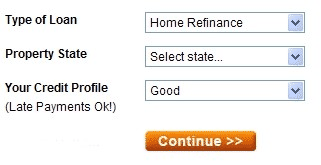Closing Costs – Glossary Term
Closing costs are fees paid up front when you get a mortgage. These are fees like origination, appraisal, title, discount, recording, underwriting, processing, etc.
At application, you can find all of your closing costs on your Good Faith Estimate. At closing, they will be on the HUD1 closing statement.
Closing Costs Mortgages
Hopefully, your closing costs will be mostly the same as the ones disclosed to you on the Good Faith Estimate when you show up for the closing and see the HUD 1 closing statement.
Prepaid closing costs are technically not a part of your closing costs. In the mortgage business, costs are generally referred to as either prepaids or hard costs.
Prepaids are days of interest, taxes, and insurance. Hard costs are the fees that go to the mortgage company and any other third party like an appraiser or title company.
The hard costs are in the sections on your closing costs estimate:
Items to be paid in connection with the loan
Title charges
Government recording and transfer charges
Additional settlement charges
The items to be paid in connection with the loan are things like origination fee, underwriting fee, processing fee, appraisal fee, etc. Title charges are all the escrow closing costs and fees for title insurance.
The recording fees are in the recording section and any other fees like courier or survey fees are in the additional section.
Prepaids are in the sections:
Items required to be paid in advance
Reserves deposited with lender
Items required to be paid in advance are interest from the day you close until the end of the month and your taxes and insurance premium.
Reserves deposited with lender are your escrow account to pay the next installment of your taxes or your insurance premium.
Who Pays Closing Costs?
You can pay for them with a check at closing which is most common when you buy your house. Or, when you buy your home you can have the seller pay for your costs. Different loan programs have different requirements for seller contributions.
You can roll them into your new loan amount and finance them which is most common when refinancing.
Or, you can increase your rate and use the money that creates to pay them.
Refinance Closing Costs
Refinance closing costs can be tricky. Since it is popular for the costs to be rolled into the loan amount on a refinance, many people are shocked to see the increase in their loan amount over the present balance.
But a refinance is a whole new loan with new costs just as when you bought. When you include your prepaids and escrows, that amount can be as much as your hard costs.
On a refinance, your escrow account cannot be transferred over to the new mortgage. A new one has to be built.
That makes your prepaid closing costs pretty steep depending on the time of year. The amount sitting in your old escrow account will be returned to you after the mortgage is paid off.
Some people don’t want their loan amount to increase sometimes thousands of dollars just to be reimbursed later. So, they bring to closing the money for their escrows and only increase the loan amount by the hard costs.
Closing Costs Average
The typical closing costs vary from state to state and lender to lender. It depends on which lender is used and how big or small your loan amount is. And it also depends if a lawyer is used.
We don’t have a closing costs calculator but you could estimate 1.25% or 1.3% of your loan amount for hard costs not counting the origination fee. That fee is based on your loan amount so it is specific.
Previous Post:« Reserves – Glossary Term
Next Post:» Mortgage Servicing – Glossary Term
Tags: Closing Costs • Good Faith Estimate • Mortgages


Leave a Reply